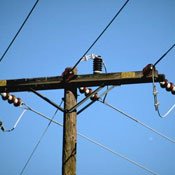The Mississippi Public Service Commission has a hard decision before it. Mississippi Power President Anthony Topazi has a logical argument on the necessity of a new $2.4 billion lignite coal-burning plant in Kemper County that seems to address tighter federal standards on carbon emissions (the plant, in theory, will capture about 50 percent of its carbon) and the need for Americans to draw more energy from American sources like locally mined lignite.
But opponents are ready to shoot down the plant, arguing that it will still belch mercury and carbon into the air and create negligible new energy after investing thousands of BTUs a day drying out and processing the low-grade coal into a usable form. (Lignite is practically rotting wet wood, in some scientific circles.)
The PSC will hear these arguments and more, but money will likely dictate its final determination. Voters who elected the commissioners will inevitably have to foot Mississippi Power's $2.4 billion bill to build the plant through rate hikes. Mississippi Power claims ratepayers will have a 15-percent rate hike, although the Sierra Club says that 15 percent will only go to paying off the interest on the loan to finance the plant, and doesn't account for the entirety of the bill.
But you can take to the bank any prediction that there will be significant rate hikes. When Entergy Mississippi brought the $3 billion Grand Gulf nuclear power plant online in 1985, it raised customer rates over a period from 1985 to 2008, with rates fluctuating between a 17.4 percent hike in 1985 to as high as 49 percent in 1995. Rate increases funding Grand Gulf floated around 40 and 45 percent for about 12 of those 23 years. The total rate increase, according to Entergy's own documentation, was 60.8 percent.
Entergy had the benefit of a customer base of 300,000 to absorb that rate increase, while Mississippi Power has only 186,000 customers to absorb the cost of the Kemper plant. (Kemper County, which will host the plant, will not face Mississippi Power's rate increases because Kemper folks get their power from TVA. Smooth move, Mississippi Power.)
The Public Service Commission will hear arguments from both sides of the issue urging them to "think about the future," whether in terms of meeting Mississippi's growing energy needs or keeping a host of foul chemicals out of the air. But the public service commissioners win elections by being popular, and their popularity among voters probably would suffer if rates go up about 60 percent to fund a coal plant.
The Commission should follow the will of the voters and work to keep rates as low as possible, not enrich stockholders.



Comments
Use the comment form below to begin a discussion about this content.